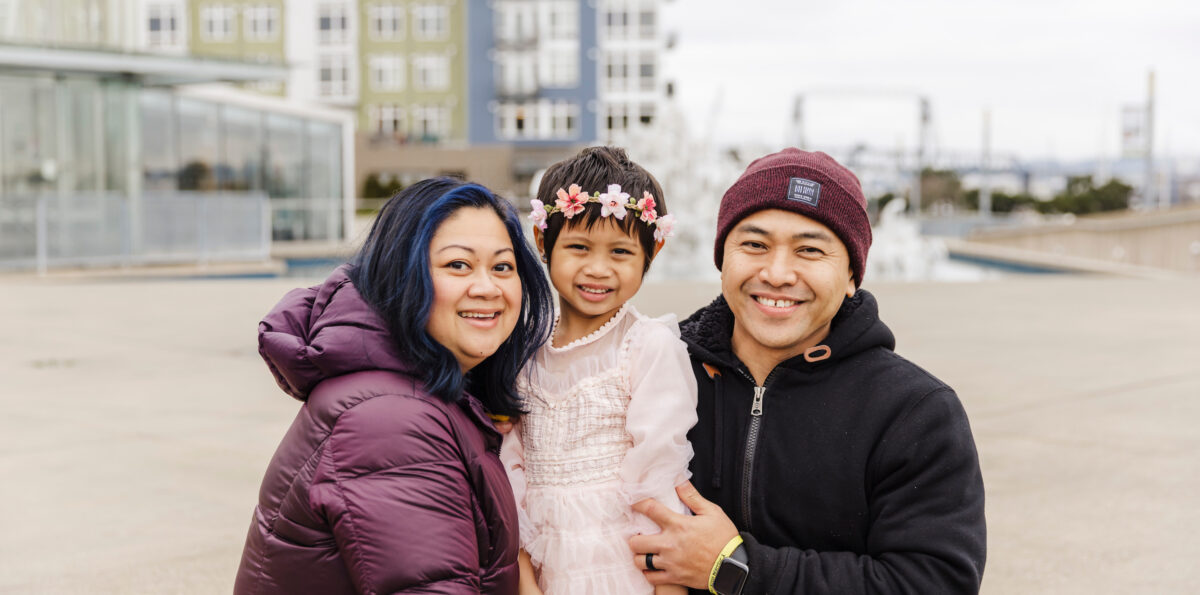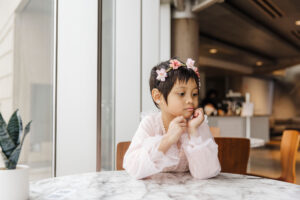Becoming a better cancer ally: What’s helpful and what’s not

If someone you know has cancer, how should you interact with them? How can you teach children about their friend’s cancer journey? What might come across as insensitive or hurtful?
Friends with even the best of intentions can miss the mark when they’re trying to help.
Hailey is a survivor of acute lymphoblastic leukemia (ALL) and says nothing hurt her feelings too badly — but making an assumption about someone in treatment can create an uncomfortable situation.
For Childhood Cancer Awareness Month, Hailey and Aggie, mom of leukemia patient Nohea, share advice on how friends and family can show genuine care and concern.
Assumptions to avoid
- “You don’t look sick — did your cancer go away?” Instead, you can ask: “How have you been doing?”
- “Are you still going to camp this summer?” Offer an open invitation: “You’re invited to [event] and we’re excited to include you however we can.”
- “My friend/aunt/coach who had cancer said that magic beans helped them. Have you tried that?” Ask instead: “What did your doctor recommend?”
- “I wouldn’t be able to handle what you’re going through. You’re so strong.” Replace this with something like: “I admire you and how hard you’re fighting.”
- “I haven’t heard from him. He must be busy and not have time to talk.” Release your expectation and consider the person would probably like to know you’re thinking of them.
Things that are helpful
- Just listen. Nohea’s mom Aggie says, “Sometimes the best and most helpful thing to do is to just listen and be supportive.” Even though it can be tempting to try and solve every problem raised, creating a safe space to be heard is a reminder that your friend and their family aren’t facing these problems alone.

Nohea’s mom, Aggie, encourages people to stop and listen to families fighting cancer battles.
- Reach out. Let your friend know you’re thinking of them with a video call or a silly postcard to distract them with a laugh.
- Offer the gift of time, whether it’s running errands, offering meals or giving rides. Back-to-back treatments can keep families far from home and interrupt their normal routines. As Aggie says, “Actions speak louder than words.”
- Focus on healing progress that has already been made. Cancer can be a long road, but reminders of what your friend has already overcome, like Beads of Courage, help put things in perspective.
Tips to skip awkward encounters
Let your friend take the lead whatever mood they might be in that day. It’s OK to ask questions, but don’t press for more details unless they’re comfortable talking about it. Instead of talking about chemo details or asking if they’ll have to quit their sports team, aim for more helpful conversations and consider what emotions the question might bring up before you ask.
Pay attention to how they’re feeling and what your friend has the ability to do, as treatment days can be isolating and zap energy. When you’re sick, it can be challenging to balance appointments with your social routine, schoolwork and extracurriculars.

Hailey loves playing soccer
Hailey says, “It’s nice to always be included, whether you can go or not. Host activities that everyone can do, such as a movie night.”
On the flipside, try not to assume your friend can’t do simple things or continue their passions because of their diagnosis. “People have assumed that I can’t play soccer at a high level because I’ve had cancer,” she shares. Hailey is now playing competitively as a high school junior.
Avoid comparing your experience to that of your friend and their family, no matter how closely you may have personally dealt with cancer.
Aggie points out that such comparisons are inappropriate because “pediatric versus adult cancer is very different, and treatment and cure rates are different. That’s another reason why giving health advice, especially herbal or natural treatment remedies, isn’t helpful to a parent with childhood cancer who doesn’t have the emotional capacity to listen to this.”
Remember to engage in supportive listening and validate their experiences.
Becoming a better ally to a friend with cancer starts with gestures as small as staying by their side to combat loneliness. Your presence and encouragement are a welcome reminder that normal life is still happening, and that it will be waiting for them on the other side of treatment.
To find more resources to support somebody with cancer, visit our patient and family support page.
This blog was originally posted in 2021 and was updated in 2024.
